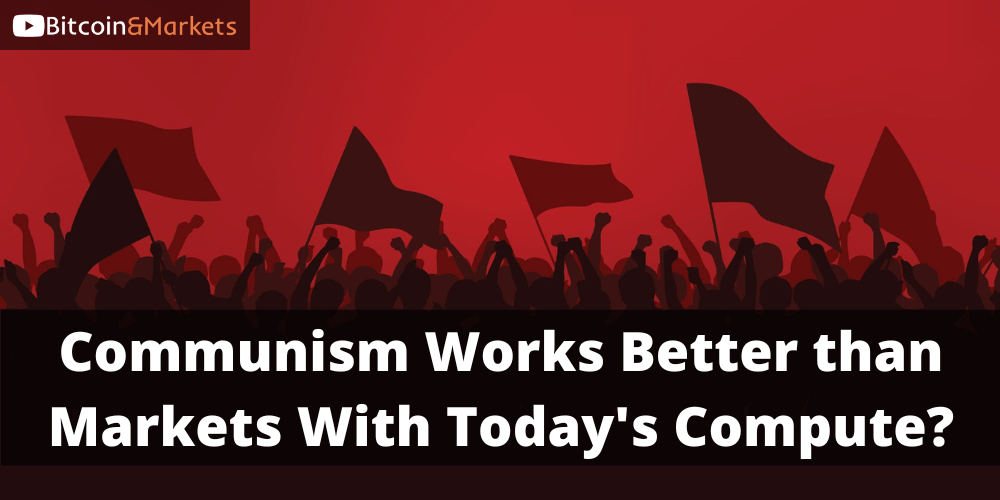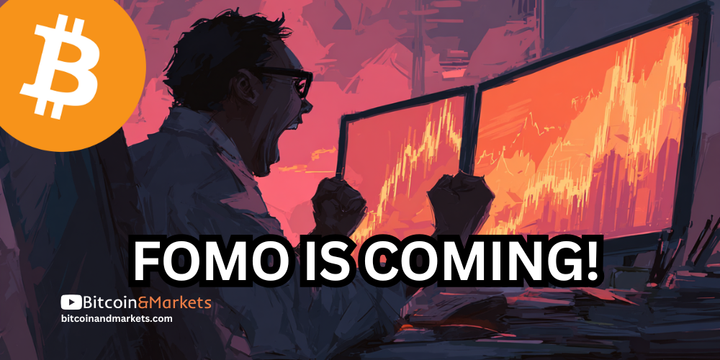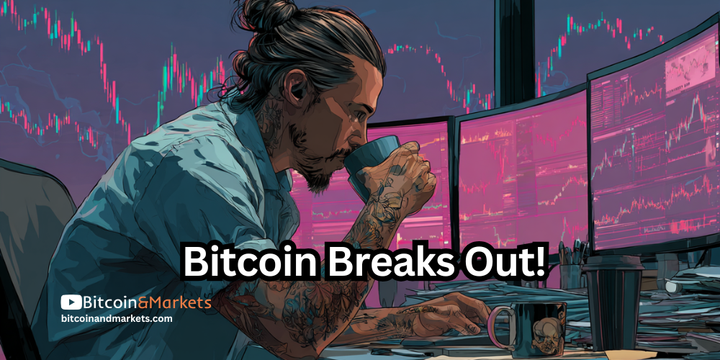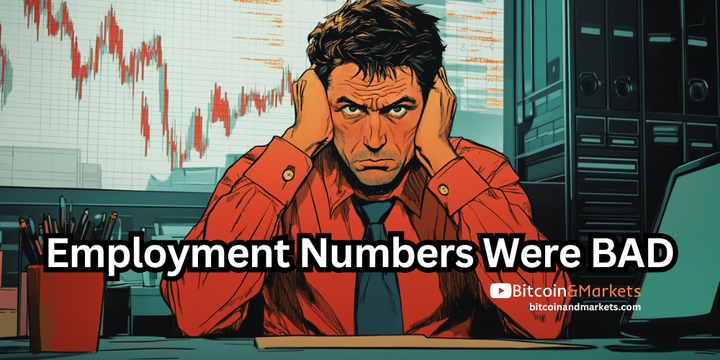Communism Works Better than Markets With Today's Compute?
Response to a communist tweet about compute power vs markets.

Browsing Twitter today, I ran across this tweet. He is basically arguing that, with today's computer power, central planning can work better than markets at organizing human economic activity.
I think I hit a religious taboo.
— Roko ⬜🟥⏸️ (@RokoMijic) April 26, 2023
Everyone arguing against me is wrong because fundamentally a market is just a calculation with a set of inputs; if you have a computer with more compute power than in all the brains of the humans in the 20th century, better data inputs than…
Of course, this has been dealt with for 100 years by the Austrian economists like Mises and Hayek, but I want to take this point by point.
Everyone arguing against me is wrong because fundamentally a market is just a calculation with a set of inputs;
A market is much more than a calculation problem. It is a collection of fleeting individual subjective valuations, goals and dreams, environmental (market) conditions, and a social-political milieu. This is actually how we know we don't live in a simulation.
Right away, his "fundamental" claim he is wrong. But what else does he have to say?
if you have a computer with more compute power than in all the brains of the humans in the 20th century, better data inputs than market research, purchase decisions and 20th century industrial monitoring could provide, then you can get a better answer than a 20th century market could calculate.
All the compute power in the world couldn't make the proper production and logistic decisions for a simple pencil. A market is not a linear process. "Better data," as he claims, is a misnomer. The market is not solving for material results, it is solving for subjective results. In the case of AI, the AI's subjective results. Life is more than bricks and mortar in the right proportion. Using a computer to calculate economic activity is like using a ruler to measure life in a coral reef.
In the 20th century we didn't have the compute to implement this. But as of 2023 we probably do. A100s are cheaper than human brains and have approximately as much compute.
Human brains are not a binary machine, we don't compute all of our decisions. We often do things that are purposefully inefficient, or on emotion, because we simply like it or it's cool. Also, the available options affect the preferred choice. If a central planner bot is making the decisions, the market will almost certainly change their values to rebel.
Every objection I have read (many repeat the same points) are vulnerable to the criticism that you can just simulate whatever the market in C20 would have done, because you have better data and more compute than that market had. Markets are not magical! They cannot magically manifest correct answers, they must perform a big computation to get the answer.
You can almost hear his ideological cry. "Markets are not magical!" No one is saying they are magical, markets are a process, not an answer. Failure is part of that market process. Is an AI going to plan who wins and loses, who goes bankrupt, who becomes a billionaire, who gets the loan? Your model has to include having children, long-term vs short-term planning, picking a career, losing your temper, mind-altering substances, a kind word that changes a life, rebellious nature, etc. Any small deviation will snowball into total breakdown.
It is theoretically possible for an AI to complete basic production decisions, but they already do. Most industries and large businesses use models run by computers to come up with a production schedule and so forth. But you don't need an AI for that. Aggregate production decisions take competition out of the economic calculation. Competition is not only a market selection mechanism, it is market motivation. How does the AI replace motivation, or alleviate the drive to compete? People are always going to want to compete economically.
Having data from the 20th Century has little meaning for today. Sure, you can pick out certain patterns of human behavior like investors and traders do, but what about micro outcomes for individuals? The claim is that AI can do what markets do, markets are 100s of millions of complex individuals. How do you motivate people when you take away merit? What if valuations change simply because it is being dictated?
Why is this not obvious to people? Probably because they have some religious magic attached to markets, which is a ward to ward off (harmful) human tendencies towards communism.
Because, it has been disproven time and time again. Why is this so confusing to people? Probably because they are self-righteous or have a magical belief in the man's ability to plan our own perfection as a species. That is a Marxist idea. He probably doesn't know that.
But note that centralized planning with a huge computer and data collection operation is not the same as communism.
Many AIs competing against each other... in a market... is not communism. One AI used by central planners to make mandatory production decisions, is communism.
The means of production are not being seized by the people or anything. The people are at this point a leisure class where computers and robots do most of the work.
Being centrally directed is a contradiction to the freedom to use your property as you deem fit. Hence, property rights are being eliminated. This is communism.
Okay, this guy must to be teasing. There is no such thing as a post-scarcity world, there will always be supply constraints and limits to resources because we live in a finite world. That creates competition. All life has these same constraints which naturally breed competition. Providing an infrastructure to deal with this competition is the advance of capitalism.
Computers and robots are built and maintained by humans. We could make robots to fix other robots, but notice "we could make." The top of the line robots will always need to be fixed, or overseen by humans for the foreseeable future. Building these robots are done on a cost benefit analysis. Their creation and maintenance have to obey economics. How do you get a return on investment if no one has a job as a part of the "leisure class" how do they make a profit? If they are uneconomic, they won't happen. You need workers earning money to make them economic. Robots also take the menial jobs first, like making the fries at fast food, or carrying roof tiles up to the roof. That will only cause the brains to revolt.
There is room for arbitrarily high levels of inequality (that is a free parameter!) - you can have some people with 1000x more budget for goods and services if you want. Not that I endorse that, but the mere theory of a central planner says nothing about equality.
I know this is controversial even in the bitcoin/freedom community, but income inequality is not entirely due to differences in merit, but it is highly correlated. The reason for massive income inequality today is due to the central planning at the end of a global credit bubble via bailing out systemically important banks and businesses. Central planning exacerbates income inequality, it doesn't make it better.
That's where I'll end his one. I could go on, but I think I covered most of it.




